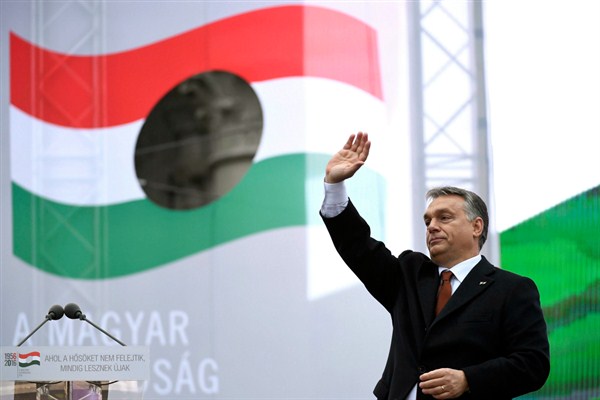Thousands of Hungarians took to the streets of Budapest to protest government corruption and the erosion of press freedoms earlier this month. The protest follows the closure of Hungary’s leading opposition newspaper, Nepszabadsag. The paper’s parent company cited falling readership as the reason for the closure, though many believe populist, right-wing Prime Minister Viktor Orban had a role to play in its shuttering.
Miklos Hargitai, a Nepszabadsag journalist, told the AP that Orban’s government “doesn’t tolerate any control or criticism, not even questions.” Orban hadn’t given an interview to Nepszabadsag in 10 years.
The newspaper’s closure is only the latest move in Orban’s bid to consolidate power in Hungary and strengthen the position of his Fidesz party. Since he took office in 2010, Orban, through legislative and institutional reforms, has limited the role of the Constitutional Court, taken control of public media, and rewritten the electoral code to make it harder for Hungarians living abroad to vote.

